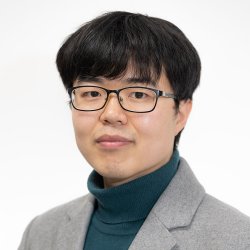Toward a quantum leap in optical sensing: developing a novel optical sensor with fluorophores on DNA origami
In this project, we will develop a novel optical sensor using quantum interaction between green fluorescence proteins placed on DNA nanostructures.
Start date
1 October 2022Duration
3 yearsApplication deadline
Funding source
University of SurreyFunding information
This project is for a student with a UK nationality, EU settled, pre-settled status or indefinite leave to remain. The student will be covered with a full tuition fee and a stipend of £19,062 per year.
About
Quantum sensing is a quantum technology that utilises a quantum mechanical system, quantum properties or quantum phenomena for measuring a physical quantity with unprecedented sensitivity, which cannot be achievable by the performance of any classical strategy in sensor technology. However, the current state of art technology in quantum sensing is typically used at condensed matter systems with extremely well-maintained laboratory environments such as cryogenic temperatures and/or vacuum conditions in which life cannot survive. Here, we aim to develop and demonstrate a new quantum sensing technology for biological applications using fluorescent proteins on DNA origami scaffolds.
In this project, you will develop a sensing platform that takes advantage of quantum interaction between fluorescence proteins. You will use fluorescence proteins which are known to be relatively insensitive to the thermal fluctuation from the environment. DNA nanostructures will be used to control distances between fluorescence proteins at nanometre scale. Finally, you will use ultrafast laser spectroscopy to probe quantum interaction between fluorescence proteins on DNA nanostructures.
Additional notes
Training and development opportunity: Through this exciting multidisciplinary project, you will be given an opportunity to build your skills and knowledge on cutting-edge topics in quantum biology, ultrafast optics and DNA nanotechnology. In addition, you will be provided with training on using state-of-art optical systems and transmission electron microscope. There will be an opportunity to collaborate with international researchers and present your result at national/international conferences during the PhD. Finally, you will be supported by the supervision team on building your skills as an independent researcher.
The environment: The University of Surrey is at the heart of the town of Guildford. We have a highly diverse research environment with a good gender and ethical balance. The student will have access to the state-of-art optical systems newly installed transmission electron microscope at the Advanced Technology Institute with ample support from professional staff.
Eligibility criteria
Applicants are expected to hold a first or upper-second class degree in a relevant discipline (or equivalent overseas qualification), or a lower second plus a good Masters degree (distinction normally required).
We are looking for an enthusiastic, self-motivated student to work on this exciting project. The ideal candidate will have experience in wet-lab and/or optics experiments, good communication skills in English and most importantly, a determined mindset to pursue the research project. We are particularly interested in candidates with previous experience in biochemistry or optics.
English language requirements
IELTS minimum 6.5 or above (or equivalent), with no sub-test score below 6.
How to apply
Applications should be submitted via the Physics PhD programme page on the "Apply" tab. Please clearly state the studentship title and supervisor on your application. The application should be submitted as a single PDF file containing CV, personal statement (one page maximum) and contacts for two references.
Studentship FAQs
Read our studentship FAQs to find out more about applying and funding.
Application deadline
Contact details
Interested candidates are encouraged to make an informal inquiry to Dr Wooli Bae (w.bae@surrey.ac.uk) or Dr Youngchan Kim (youngchan.kim@surrey.ac.uk) as soon as possible as the funding is competitive.
Research
Wooli Bae is a lecturer at the Department of Physics with the research area of experimental nucleic acid nanotechnology. Youngchan Kim is a lecturer in Quantum Biology studying quantum effects of biological systems with femtosecond optical spectroscopy.

Studentships at Surrey
We have a wide range of studentship opportunities available.

